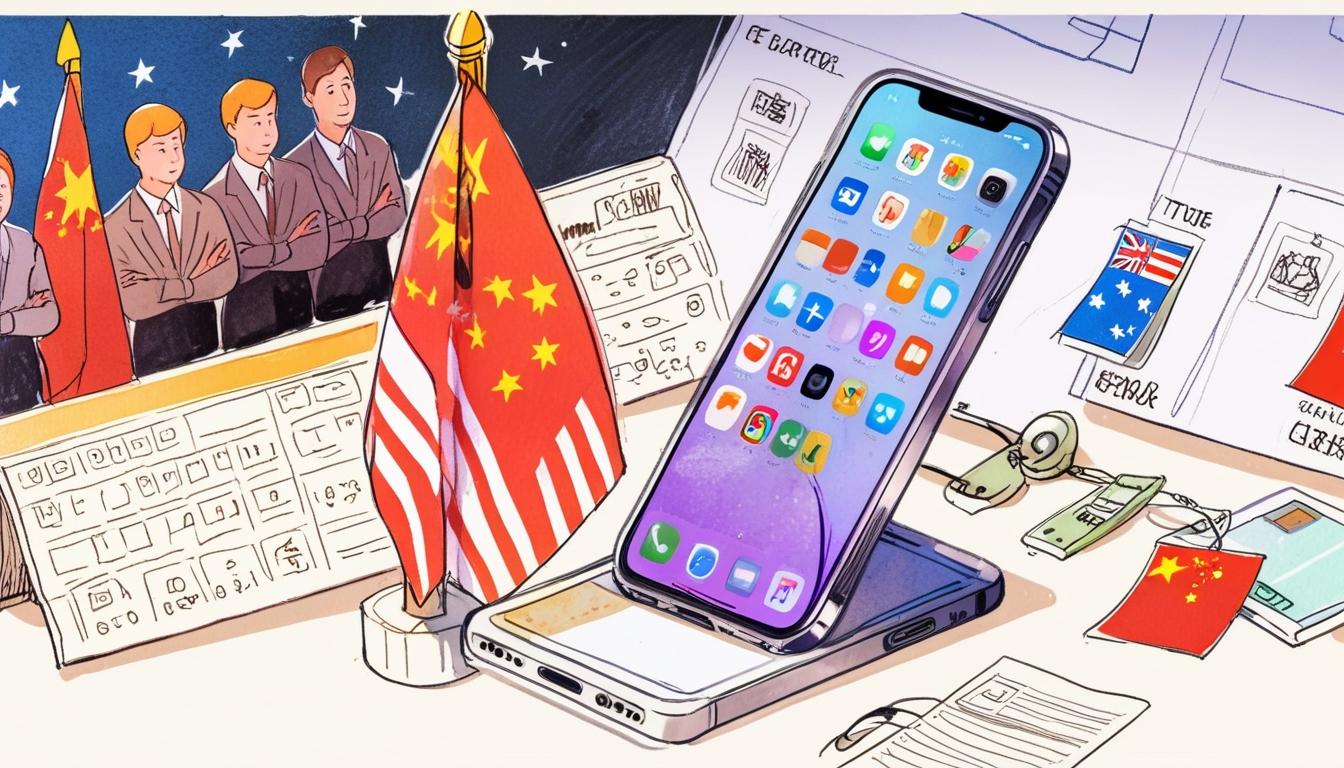The recent escalation of the US-China trade war is poised to significantly increase the price of Apple’s iPhones, with forecasts suggesting a potential rise of hundreds of pounds in the UK and even more drastic projections in the United States. The impending price hikes are attributed to a series of tariffs imposed by the Trump administration on Chinese imports, which represent a critical component of Apple’s extensive supply chain.
Currently, a standard iPhone 16 Pro retails in the UK for £999, while the 'max' version is priced at £1,199. However, experts are warning that these prices could swell by as much as £400 in the UK as a result of newly implemented tariffs. In the US market, estimates provided by industry analysts suggest the cost could potentially triple, pushing the price of some models to as high as $3,500 (£2,740) if all assembly is shifted domestically.
Apple's manufacturing footprint is intricate, with key components sourced from nearly 50 different countries, although China remains the preeminent hub for assembly, producing around 90% of iPhones. The supply chain also involves significant contributions from countries like India and Vietnam, while Taiwan plays a vital role in semiconductor production through the Taiwan Semiconductor Manufacturing Company (TSMC). Notably, 84% of iPhone part suppliers have links to mainland China, indicating the extent of reliance on Chinese manufacturing.
During a recent White House event, President Trump referred to the rising concerns regarding tariffs, stating, "I thought that people were jumping a little bit out of line... getting a little queasy." Trump announced a 90-day pause on new tariffs but clarified that exceptions apply to China, which has retaliated with an eye-watering 125% tariff on US products. This exchange between the two economic powerhouses instigates uncertainty that is likely to reverberate through the technology market.
Financial analysts such as Ben Barringer from Quilter Cheviot have highlighted the profound implications these tariffs may have on Apple's global supply chains. He noted, "The tariffs announced are going to have a profound impact on supply chains globally, and not just on US consumers." Barringer anticipates that increased manufacturing costs will necessitate a corresponding rise in retail prices, leaving Apple with two options: raise prices to maintain profit margins or absorb the cost with diminished profits.
Harry Mills, founding member of Oku Markets, reiterated the complexities Apple faces in potentially relocating its production to the US. He stated, "This would take a Herculean effort of coordinating an enormous supply chain relocation, and would surely lead to price increases in the long term," explaining that US labour costs would surpass those in regions like China and Taiwan.
Amidst this climate, Apple CEO Tim Cook previously managed to secure exemptions on billions of dollars' worth of imports during the earlier phases of Trump's tariffs, but as of now, no such exemptions are in place. This development, alongside the surging tariffs from China, raises questions about the strategic decisions Apple may have to make moving forward.
In a broader context, analysts warn that the ongoing trade tensions and subsequent price increases for consumer electronics carry the potential for severe repercussions in the technology sector, ultimately affecting consumers globally. With the iPhone now serving as a touchstone in the economic tensions of the trade war, the outcome of these developments remains to be seen as both companies and consumers await further announcements from both governments.
Source: Noah Wire Services
